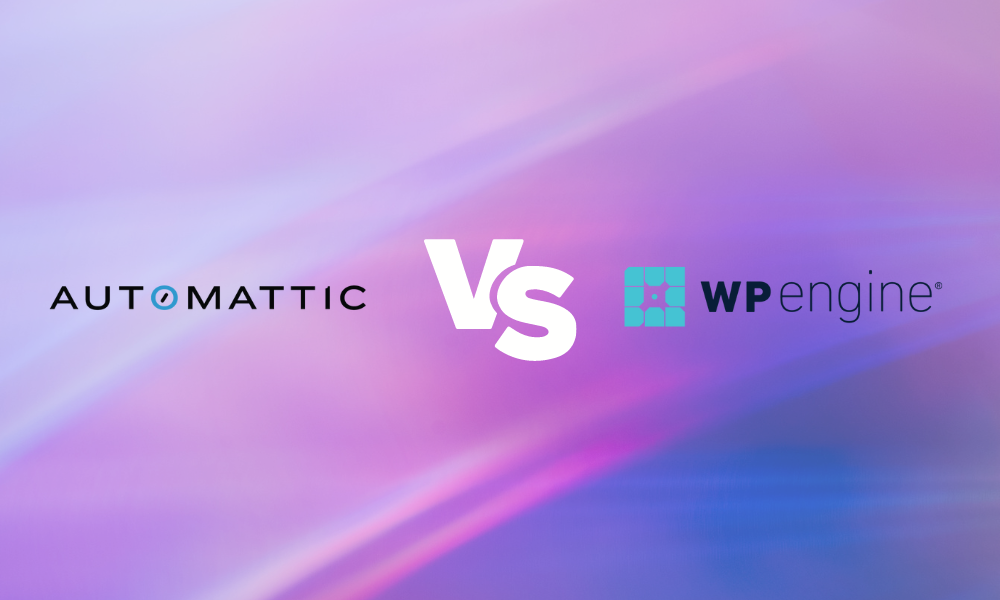We hope you enjoy reading this blog post
If you need help with website or marketing, book a call with our team for a free 360° overview and actionable recommendations report. Book a call

If you need help with website or marketing, book a call with our team for a free 360° overview and actionable recommendations report. Book a call

If you are utilizing WordPress and have not yet come across the ongoing conflict between WP Engine and Automattic, the parent company of WordPress.com, here are the essential details.
Automattic, the parent company of WordPress.com, initiated a contentious dialogue with rival hosting provider WP Engine regarding revenue sharing and using the WordPress trademark. This dispute highlights the complexities of managing open-source projects while balancing commercial interests.
On September 20th, Automattic presented a proposed seven-year agreement to WP Engine, demanding an 8 percent monthly revenue contribution. This contribution could either be allocated as a royalty fee or directed towards salaries for WP Engine employees contributing to the WordPress.org project. If WP Engine opted for the royalty route, Automattic indicated it would publicly acknowledge these contributions as part of the Five for the Future initiative, which encourages companies to invest 5 percent of their resources into the WordPress community. Conversely, if WP Engine chose to pay employee salaries, the agreement would grant Automattic significant oversight rights, including access to employee records and time-tracking.
The proposed terms included restrictions on modifying Automattic’s software, including popular plugins like WooCommerce, effectively preventing WP Engine from forking these resources.
However, WP Engine rejected the proposal, asserting that its use of the WordPress trademark and abbreviations falls within fair use. This stance led Automattic to withdraw its terms, citing “WP Engine’s behavior, deception, and incompetence.” A request for comment from WP Engine was not immediately returned.
The tension between these two companies has escalated into a public dispute over the proper use of WordPress.org’s open-source code. During the WordCamp conference, Automattic CEO Matt Mullenweg criticized WP Engine for its lack of contributions to the community and threatened legal action regarding alleged misuse of trademarks. An Automattic spokesperson clarified that the core issue revolves around trademark usage, rather than the open-source software itself.
In response, WP Engine issued a cease and desist order against Automattic, alleging that Mullenweg engaged in what they described as harassing communications with company executives prior to his keynote address. Automattic dismissed these claims as unfounded and reiterated its request for a revenue-sharing agreement to support the WordPress community.
As a consequence of this ongoing conflict, WordPress.org has banned WP Engine from its servers as of October 1st, cutting off access to essential updates and plugins. In turn, WP Engine has implemented its solutions to ensure its customers can continue to utilize its hosting services without disruption.
This unfolding situation serves as a critical case study for software engineers and companies involved in open-source projects, emphasizing the importance of clear agreements and the delicate balance between community contributions and commercial use. As the discourse continues, the implications for both trademark rights and the sustainability of open-source initiatives remain at the forefront.
If you or your team encounter this issue and are uncertain about the next steps to ensure the safety and security of your WordPress site, please don’t hesitate to reach out. We offer excellent fully managed hosting solutions tailored to your needs. Schedule a call with our technical team today.
Please complete the form below and one of our team members will be in touch shortly.